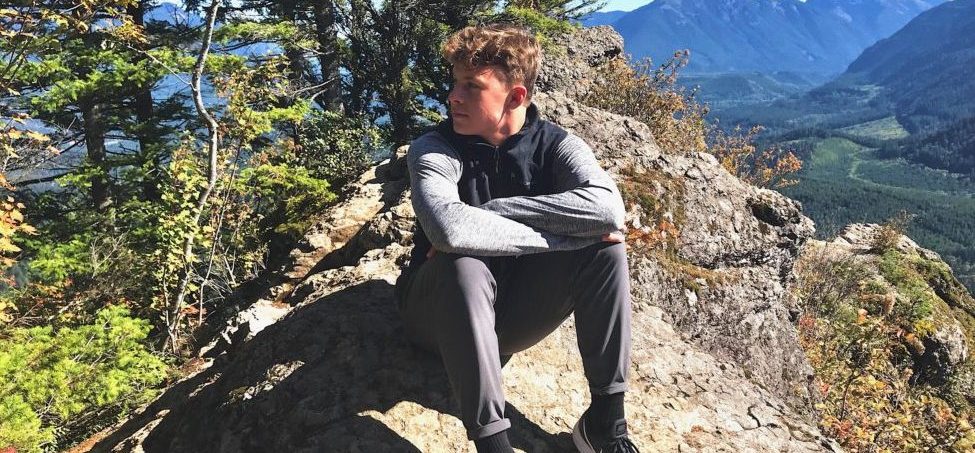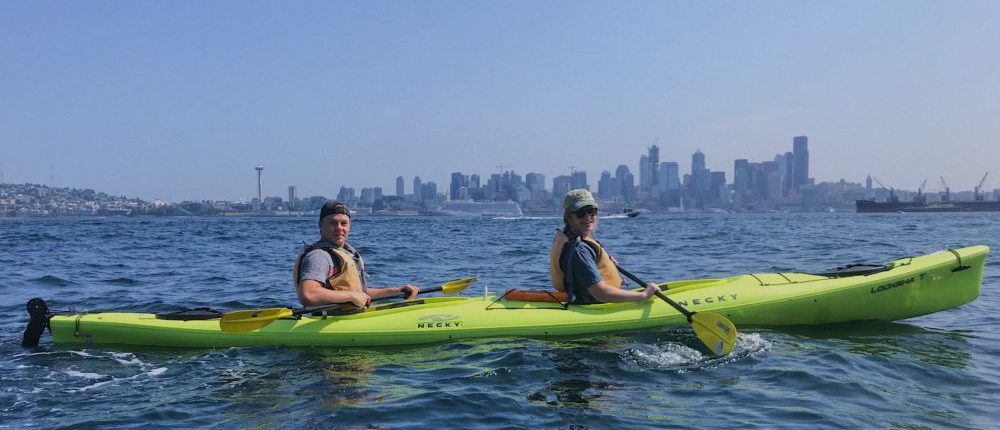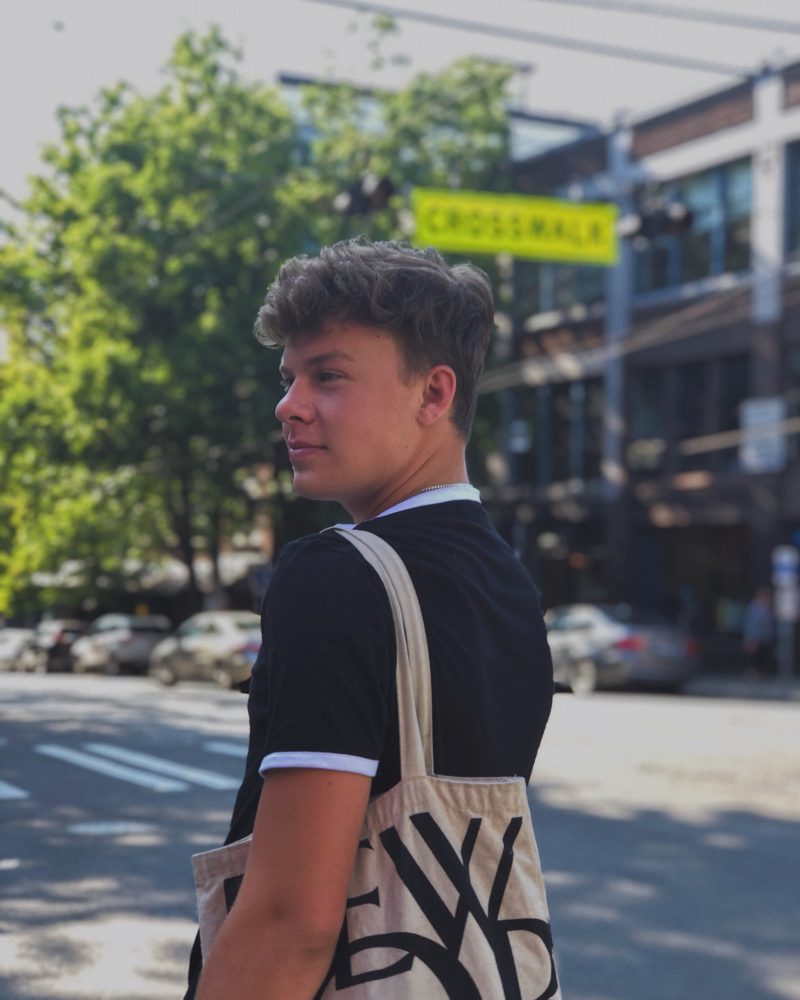
Michael Behr is the new Minerva Summer Intern and a current Seattle University marketing student. We [virtually] sat down with him to see how things are going and learn more about what brought him to this team of goddesses.
Where are you from and what made you decide to come to Seattle?
I’m originally from St. Louis, Missouri, about 15 minutes from the Gateway Arch. Most people think it’s a flyover city, but there’s a lot to offer and a lot of history. One of the main reasons I came to Seattle is I really wanted to be immersed in a more urban metropolitan area with more city life and diversity.
Primarily, I came here for school. Seattle University has a great marketing and communications program, while also being a social justice-forward school. I’m so grateful that I got to come here because we’re in the heart of the Capitol Hill neighborhood, which is at the frontlines of Seattle protests. Not to say that St. Louis, a blue city, isn’t an urban metropolitan area, but coming from a red state shapes who you are as a person. I was excited to come to a blue state that reflects my values. That really opened my eyes up to the rest of the world as well.
Is there anything that has surprised you in Seattle?
Coming from St. Louis, the one thing that I miss the most (other than my family) would be the thunderstorms. St. Louis has a lot of thunderstorms with hard rain downpours, especially in the spring and summer, that I find to be very comforting to listen to. It’s something that I’ve always enjoyed and miss dearly. I was surprised coming to Seattle how little rainfall there actually is. When it rains here you, can’t even hear it against the glass. You barely see it when you look out your window!
No one even carries an umbrella…unless of course it’s during protests.
What draws you to work in social impact?
In high school, I was very active in immigration and refugee reform volunteering. I got to go to Washington, DC and advocate for immigration reform in front of U.S. Senators Claire McCaskill and Roy Blunt of Missouri. One of the most valuable experiences I had was working at Nahed Chapman New American Academy, where I volunteered as a teacher’s assistant for the school, which is completely comprised of newly arrived immigrants and refugees from all over the world.
All of that led me to marketing because I knew that if I got an education in marketing and communications, I could use my creativity and writing skills in organizations centered on social justice. Especially after the inequalities, COVID has revealed more apparently than ever, I could never see myself going a day without fighting the good fight for change that I want to see for future generations.
If there’s one change that you’d like to see in our world tomorrow, what would it be?
Defund the police. I truly believe this could happen tomorrow. With what I’ve heard from Seattle City Council members, defunding the police really isn’t as radical as people think. It’s important to look at the spending each major U.S. city has for their police department in comparison with programs that are actually for their people, especially their Black communities. It means taking some of the allocated money for the police departments and giving it back to community programs that will tackle the root causes of poverty and disenfranchisement.
I want to see changes that match the demands of my fellow Seattle protesters: defund the police and allocate funds to our Black communities, release all protesters, and put an end to youth jails.
What do you hope does not change in the future?
This might be kind of sappy, but I love the spirit of American youth that we’re seeing today. All of our past civil rights movements have been led by youth. That spirit of wanting a better future for our children and our children’s children and taking it into our own hands is what I see as the American spirit.
Living in Seattle’s Capitol Hill, the home of CHOP and the frontlines of the biggest protests, we know that you have been quite involved. What drew you to joining in?
I was 15 years old and a sophomore in high school in St. Louis when Michael Brown was murdered in Ferguson, Missouri, 15 minutes from my home. At the time I was too young to participate, but old enough to be aware of what was happening. I felt so hopeless sitting at home only minutes away from where everything was going on. That really changed me as a person and sparked my involvement in social change. Now there is no way for me not to participate.
As a white person, I know that my position is to educate myself and my friends and family—especially those with opposing viewpoints—on systemic inequality and systemic racism in our country. My going out to protests has been a show of support for the community. It wasn’t so much about using my voice as amplifying the voices of people of color.
Why did you choose to intern at Minerva?
A lot of my personal development has involved social justice. To see that a communication firm works solely with groups that are here to change our planet and our country for the better was so fulfilling. It was exactly what I wanted to be doing with my career. I couldn’t have been happier to join Minerva knowing that every day that I’m working here, I’m using my voice, skills, and education to change the future.
Has anything surprised you about your time as a Minerva intern yet?
I was surprised about how comfortable and easy it was to onboard from an online perspective. Many of my friends had their opportunities for internships cancelled, so I’m very grateful that the Minerva team was set up online and willing to continue with the internship.
Going into this, I wasn’t sure if I was going to be on somebody’s screen from nine to five, just doing whatever they needed in the moment. But since Minerva was already on Microsoft Teams, with offices in DC and Seattle, that made the whole process really smooth.
Any quarantine tips or new habits?
Call your parents as much as possible. We all have the time now, so we might as well!
Have you been reading or watching anything great lately?
I have been watching Mrs. America on Hulu. It’s a show about the Equal Rights Amendment in the 1970s and second-wave feminism. To watch the culmination of the 10-year effort to ratify the Equal Rights Act was crazy. It’s important for all to watch, especially people in St. Louis who may not be familiar with Phyllis Schlafly.
What have you changed your mind about, recently?
Scallops. I’ve always enjoyed cooking from a young age, but now that I have my own kitchen, I can test all my skills and I’ve changed my mind about scallops. I love them pan-seared with a nice white wine butter sauce. It’s perfect. I’ve been going off in the kitchen!
What’s your dream job?
My ultimate dream job would be Serena William’s hitting partner or coach or anything like that. She’s always been my favorite. More realistically, I would love to be a political adviser or work a campaign for somebody I truly believe in who’s going to create change.
But only of course if Serena Williams isn’t available.
Are there any rules that you live by?
Always take the stairs number one. You don’t need to work out. Just take the stairs.
Repeat in your head what you’re about to say out loud before you say it. I was always the most talkative child and always got in trouble in school.
Overall, continue to educate yourself on what’s happening in our country right now. And look for ways to educate others while educating yourself.
And that concludes our light interrogation of Michael. Normally we’d tell you to stop by our office to meet him, but for now, you can reach out to him at intern[at]minervastrategies[dot]com to talk all things social justice, St. Louis, and Serena Williams.

